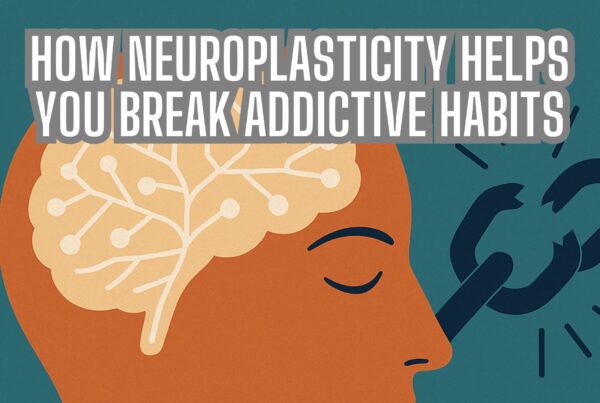How Our Emotions Play Tricks on Our Perception of Time
We’ve all been there – some days feel like they’re dragging on forever, while others seem to fly by in the blink of an eye. But have you ever stopped to wonder why? Recent research suggests that our emotional state might have a lot to do with how we perceive the passage of time.
The Intriguing Connection Between Emotions and Time Perception
Researchers Jingyi Wang and Regina Lapate from the University of California, Santa Barbara, delved deep into this phenomenon. They were curious to find out if our emotions, particularly negative ones, have any influence on how we perceive time.
To get to the bottom of this, they conducted an experiment with 80 volunteers. Participants were shown images that either evoked negative emotions, like a coffin, or were neutral, such as a table. Each image was displayed for 4 seconds, followed by a 2.5-second gap. Every set of four consecutive images, whether negative or neutral, was considered an “event.”
But here’s the twist: between these events, Wang and Lapate made subtle changes. They either switched the emotion conveyed by the images, altered the color of the picture borders, or did both. This was done to mimic how our real-life experiences can vary in terms of emotional content or perceptual details.
What Did They Discover?
Participants were periodically asked to gauge the time interval between pairs of images they had seen. They used a slider marked with terms like “very far,” “far,” “close,” and “very close” to indicate their perception.
Interestingly, when participants were asked to gauge the time between a neutral image and a negative one from two different events, they felt that the time was longer. But when they looked at two negative images from the same event, they felt they were closer together compared to two neutral images.
Another fascinating aspect of the study was the use of questionnaires to determine participants’ general outlook on life. It turned out that those with a more negative perspective felt that time passed more slowly during the switch from neutral to negative images.
Carien Van Reekum from the University of Reading, UK, points out the implications of this finding. She mentions that constantly focusing on negative events is often linked with anxiety and depression. Wang believes that this research could potentially serve as an early warning sign for such conditions in the future.
But What About Positive Emotions?
One limitation of the study was that it didn’t include images that evoke positive emotions. So, it’s still a mystery whether the changes in time perception are solely due to negative emotions or if emotions, in general, play a role.
However, the researchers aren’t stopping here. They’re now on a mission to understand the effects of positive events on time perception. They’re also exploring if emotional arousal indicators, like facial movements, can explain the varied reactions people have to the same image.
Emotions and Time Perception
Our emotions, especially the negative ones, seem to have a peculiar way of warping our sense of time. While we await more insights from further research, it’s fascinating to realize just how interconnected our emotions and perceptions truly are.
Release Hypnosis Melbourne Hypnotherapy
Since 2015, Lawrence Akers has been working under the name Release Hypnosis offering Hypnotherapy and ACT based work to the people of Melbourne or an online service. Based on St Kilda Rd, Release Hypnosis is an easy and convenient location to get to and accessible by the ANZAC station train and tram stop. Release Hypnosis can help with a wide range of presenting issues, and I offer a free 30 minute no obligation discovery call for those who are unsure if hypnotherapy is the right way forward for them.
Book Your FREE 30 Minute Consultation With Release Hypnosis NOW!
You may also like to read:
Discovering Purpose and Values: A Path to Mental Well-being
Can’t Visualise in Hypnosis? Here’s What You Can Do Instead.
Dealing with Financial Stress and Crisis: Finding Peace Amid Turbulence
What Is The Success Rate of Hypnosis?
Release Hypnosis Melbourne Hypnotherapy is accessible for people in: Abbotsford, Armadale, Albert Park, Balwyn, Bentleigh, Black Rock, Box Hill, Brighton, Brunswick, Bulleen, Bundoora, Camberwell, Canterbury, Carnegie, Caulfield, Chadstone, Cheltenham, Clayton, Coburg, Collingwood, Deer Park, Doncaster, Elsternwick, Eltham, Elwood, Epping, Essendon, Fairfield, Fitzroy, Footscray, Glen Iris, Glen Waverley, Glenhuntly, Greensborough, Hampton, Hawthorn, Heidelberg, Highet, Ivanhoe, Kew, Kooyong, Lalor, Laverton, Lower, Plenty, Macleod, Malvern, Middle Park, Moonee Ponds, Melbourne, Moorabbin, Mount Waverley, Murrumbeena, Northcote, Oakleigh, Ormond, Parkville, Pascoe Vale, Port Melbourne, Prahran, Preston, Richmond, Rosana, Sandringham, South Yarra, South Melbourne, Spotswood, St Albans, St Kilda, Surrey Hills, Templestowe, Thornbury, Toorak, Tullamarine, Williamstown, Yarraville, North Melbourne, Windsor, East Melbourne, Melbourne, Melbourne CBD, Melbourne 3004








